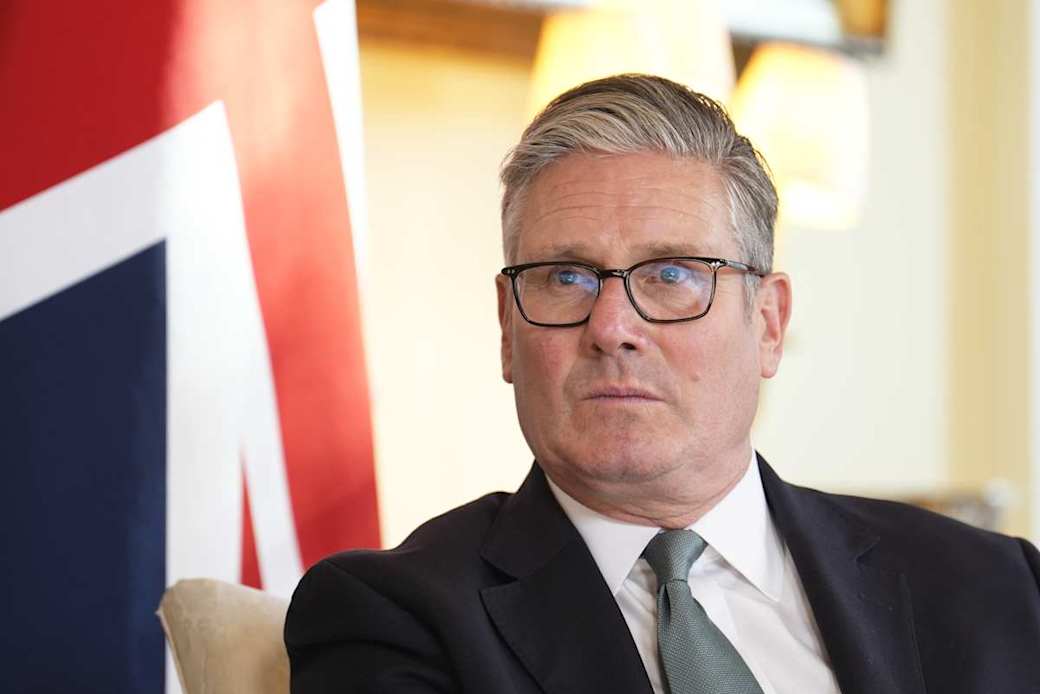Labour Leader Starmer Pleads for Iran to Rejoin Diplomatic Talks Post-US Strikes
British Prime Minister Keir Starmer has called on Iran to return to diplomatic negotiations following U.S. airstrikes on its nuclear facilities, warning that further escalation could have “catastrophic consequences” for the Middle East and beyond. The plea comes as tensions soar after the U.S. targeted sites linked to Iran’s nuclear program, prompting Tehran to vow retaliation.
Starmer’s Call for Diplomacy
In a statement from Downing Street, Starmer expressed “deep concern” over the U.S. strikes, which hit key Iranian nuclear sites, including Natanz and Fordow, on Saturday. “While we recognize the concerns about Iran’s nuclear activities, military escalation risks a wider conflict that serves no one’s interests,” he said. “I urge Iran to exercise restraint and return to the negotiating table to resolve these issues through dialogue.”
Starmer emphasized the need to revive the 2015 Joint Comprehensive Plan of Action (JCPOA), commonly known as the Iran nuclear deal, which the U.S. withdrew from in 2018. He called for all parties, including the U.S., Iran, and European signatories, to recommit to diplomacy to prevent further destabilization.
U.S. Strikes and Iran’s Response
The U.S. justified the airstrikes as a response to intelligence indicating Iran was advancing its nuclear weapons program in violation of international agreements. Pentagon officials claimed the strikes were “precise and proportionate,” aimed at degrading Iran’s nuclear capabilities while minimizing civilian casualties. However, Iranian state media reported significant damage to infrastructure and an undisclosed number of deaths.
Iran’s Supreme Leader, Ayatollah Ali Khamenei, condemned the strikes as “an act of war” and promised “severe consequences.” Tehran has suspended cooperation with the International Atomic Energy Agency (IAEA) and mobilized its Revolutionary Guard Corps, raising fears of retaliatory attacks on U.S. or allied targets in the region.
International and Regional Ramifications
Starmer’s call for diplomacy aligns with broader European efforts to de-escalate the crisis. French President Emmanuel Macron and German Chancellor Olaf Scholz issued similar statements, urging all parties to avoid further military action. The European Union is pushing for an emergency meeting of JCPOA signatories to salvage the nuclear deal.
Russia and China, key allies of Iran, condemned the U.S. actions, with Beijing calling for an end to “unilateral aggression.” Meanwhile, Israel, which has long viewed Iran’s nuclear program as an existential threat, has remained on high alert, with Prime Minister Benjamin Netanyahu praising the U.S. strikes as “a necessary step.”
The Middle East is bracing for potential fallout, with Iran-backed groups like Hezbollah and Iraqi militias threatening reprisals. Oil prices surged 9% on Monday, reflecting fears of disruptions in the Strait of Hormuz, a vital artery for global energy supplies.
UK’s Role and Domestic Pressure
Starmer’s government faces domestic pressure to balance its support for de-escalation with its alliance with the U.S. and concerns about Iran’s regional influence. Labour MPs have urged the Prime Minister to prioritize diplomacy, while Conservative critics argue that Iran’s actions justify stronger measures. “We cannot ignore Iran’s destabilizing role in the region,” said Shadow Foreign Secretary Andrew Mitchell, calling for robust sanctions alongside talks.
The UK has deployed additional naval assets to the Persian Gulf to protect British shipping interests, signaling preparedness for any escalation. Starmer, however, stressed that “diplomacy is our best tool to prevent a wider war.”
A Fragile Path Forward
Analysts warn that the window for de-escalation is narrowing. “Iran’s suspension of IAEA cooperation and the U.S.’s unilateral strikes have pushed the region to the brink,” said Dr. Sarah Mansour, a Middle East expert at the London School of Economics. “Starmer’s call for talks is pragmatic, but it will require concessions from both sides, which seem unlikely in the current climate.”
As the United Nations Security Council prepares for an emergency session, Starmer has pledged to work with international partners to avert a broader conflict. “The stakes are too high for miscalculation,” he said. “We must act now to pull back from the edge.”
